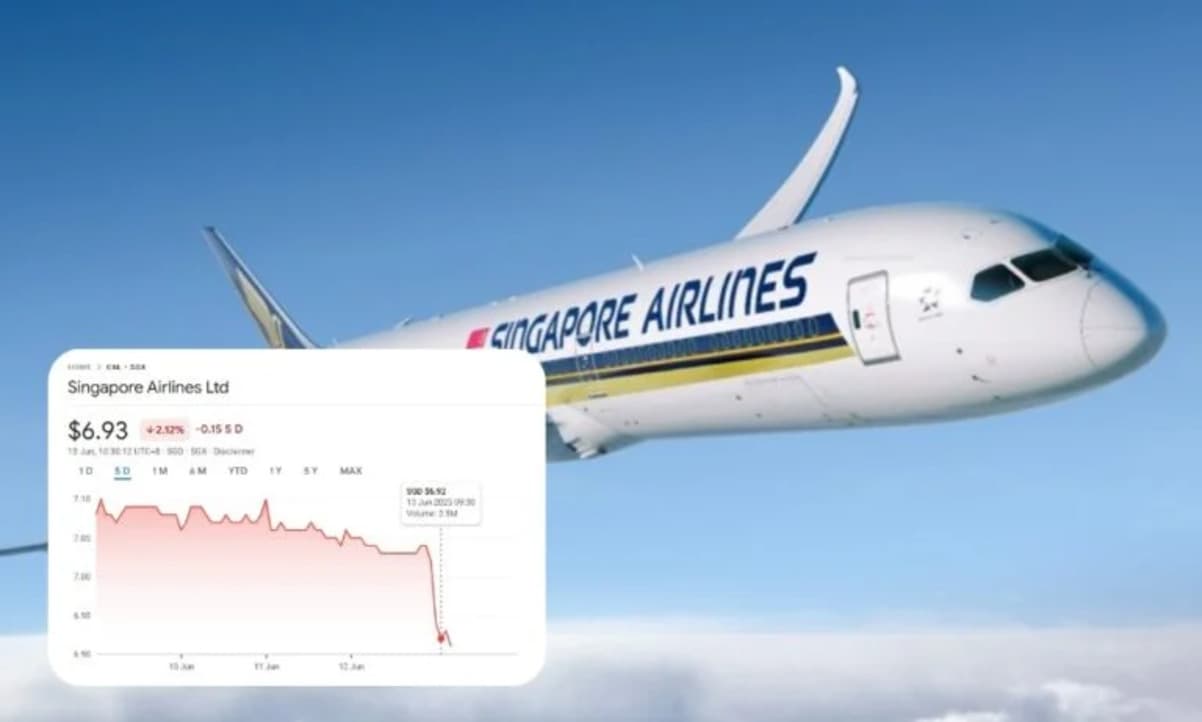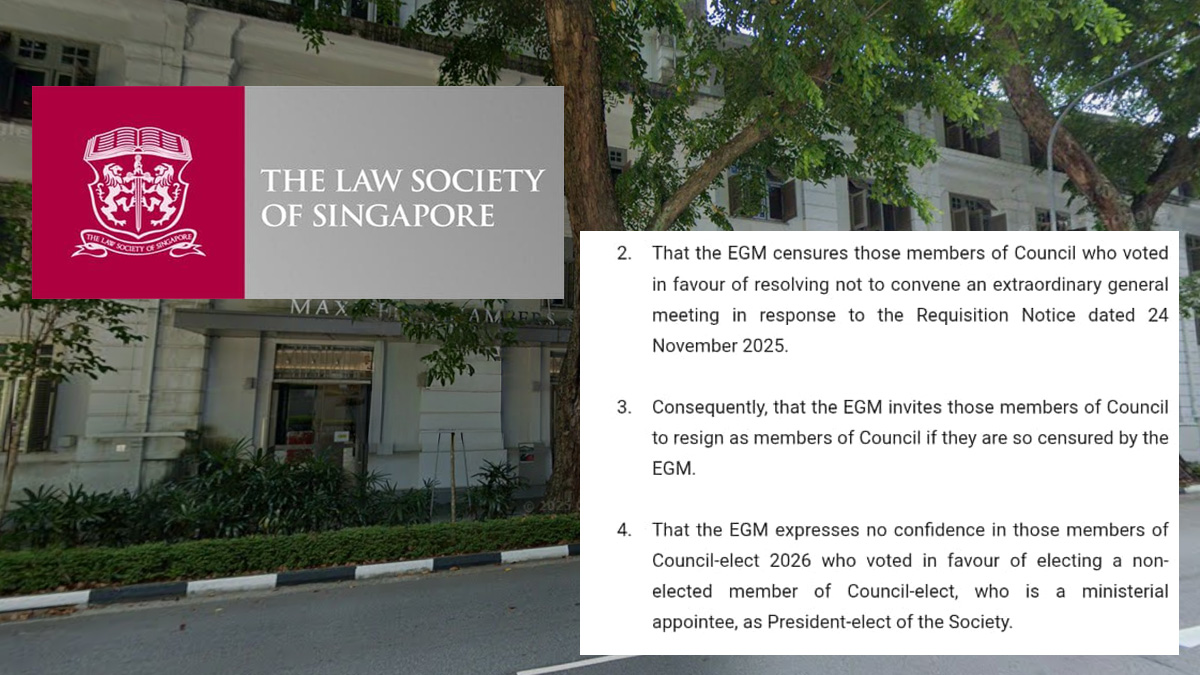Singapore Airlines shares fall after deadly Air India crash; wider Asian markets hit by geopolitical tensions
Singapore Airlines shares dropped on 13 June after an Air India crash that killed at least 265 people. The decline came amid regional market weakness linked to Middle East tensions and rising oil prices.

- Singapore Airlines shares fell 1.8% to S$6.90 on 13 June, following the deadly crash of Air India Flight AI171 that killed at least 265 people.
- Broader Asian markets declined amid Israeli airstrikes in Iran, escalating tensions, and surging oil prices.
- The crash marked the first total loss of a Boeing 787 Dreamliner, sending Boeing’s shares down 4.8% in New York.
Singapore Airlines (SIA) shares fell on Friday, 13 June, following a deadly crash involving an Air India flight the previous day that killed at least 265 people. The drop also came against a backdrop of weakening Asian markets due to geopolitical instability and higher oil prices.
By 9.30am, SIA stock had fallen by 13 cents, or 1.8 per cent, to S$6.90. The decline followed the crash of Air India Flight AI171 on 12 June, a Boeing 787 Dreamliner en route from Ahmedabad to London, which went down shortly after take-off.
Authorities confirmed that 241 of the 242 people on board had been killed, with only one passenger surviving. The crash also caused fatalities on the ground after the aircraft struck a medical college hostel, bringing the total death toll to at least 265.
The Straits Times Index fell by 0.5 per cent in morning trade, reflecting a wider drop across Asian markets. Investors remained wary amid concerns over regional stability, particularly after Israeli airstrikes in Iran earlier in the week, which have raised fears of a broader conflict in the Middle East.
Geopolitical uncertainty pushed oil prices higher, weighing on aviation and transport stocks. Rising fuel costs typically translate into higher operating expenses for airlines, affecting profitability and investor confidence.
SIA’s decline also reflected investor sensitivity to its 25.1 per cent stake in Air India, which it acquired through the merger of Air India with Vistara in November 2024. Vistara had been a joint venture between Tata Sons and SIA.
Through the investment, SIA positioned itself to capitalise on the fast-growing Indian aviation market, which has been recovering rapidly from the pandemic. Analysts said the stake also strengthens Singapore’s role as a key transit hub for passengers travelling between South Asia, Southeast Asia, and beyond.
SIA and Air India maintain an extensive codeshare agreement. In 2024, the partnership was expanded to cover 11 Indian cities and 40 international destinations, including services between Singapore and major hubs such as Bengaluru and Chennai. The two carriers also increased the number of weekly codeshare flights to 56, enhancing connectivity for passengers.
On 12 June, Singapore Airlines issued a statement expressing solidarity with its partner. “Singapore Airlines extends our deepest condolences to all passengers, crew members and their families affected by Air India Flight AI171,” the airline said.
The crash is under investigation by Indian authorities, with support from the US National Transportation Safety Board (NTSB) and the Federal Aviation Administration (FAA). The incident marks the first total loss of a Boeing 787 Dreamliner, an aircraft with a strong safety record and a key product for Boeing since its introduction.
Globally, 1,148 Dreamliners are currently in service. Boeing shares fell sharply by 4.8 per cent in New York trading on 12 June, marking the largest decline among S&P 500 stocks for the day. Market analysts said concerns over the Dreamliner’s reputation and potential regulatory reviews contributed to the sell-off.
The crash comes at a time of strong financial performance for Singapore Airlines. In May, the carrier posted a record net profit of US$2.8 billion for the financial year ending 31 March 2025. The result was supported by resilient travel demand and a one-off non-cash accounting gain of US$1.1 billion linked to the Air India–Vistara merger.
Analysts noted that while the accident is unlikely to materially affect SIA’s financial results in the short term, its shareholding in Air India means the Singaporean carrier is indirectly exposed to operational and reputational risks associated with the tragedy.
Market watchers said investor sentiment towards aviation stocks is expected to remain cautious in the near term, given rising oil prices and broader regional instability. The incident involving Air India may also prompt closer scrutiny of safety protocols across South Asia’s fast-expanding aviation industry.








0 Comments